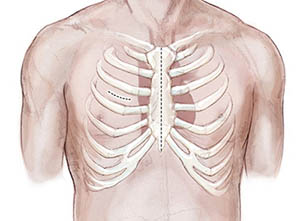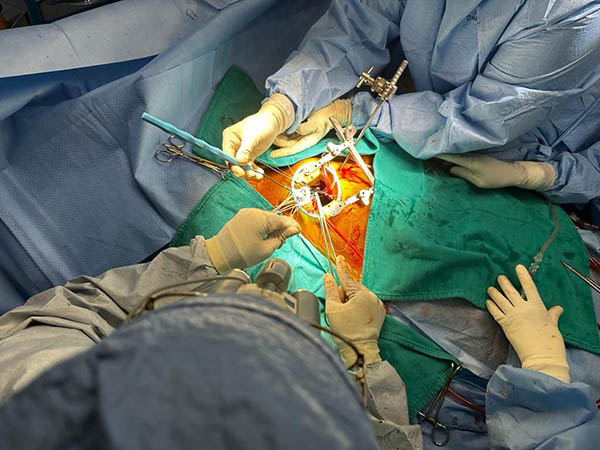What is Minimally Invasive Mitral Valve Surgery
Using a small incision on the right side of the chest rather than opening the breastbone provides good access to the Mitral valve
Mitral valve repair and mitral valve replacement are types of surgery to fix or replace a leaky or stiff mitral valve in the heart. The mitral valve is between the left heart chambers (left atrium and left ventricle).
Mitral valve repair and mitral valve replacement may be done as an open-heart surgery procedure or as minimally invasive heart surgery. Sometimes a mitral valve problem may be treated with a catheter-based procedure. The specific procedure used depends on the severity of your mitral valve disease and whether it's getting worse.



Why it's done
Surgery or another procedure to repair or replace a mitral valve may be done if you have mitral valve disease such as:
- Mitral valve regurgitation. The flaps (leaflets) of the mitral valve don't close tightly, causing blood to leak backward. Mitral valve regurgitation is common in people with mitral valve prolapse. Mitral valve repair surgery is recommended if you have severe mitral valve regurgitation symptoms.
- Mitral valve stenosis. The valve leaflets become thick or stiff, and they may fuse together. This causes the valve to become narrowed and reduces blood flow through the area.
If mitral valve disease is mild, your health care provider may first suggest regular checkups to monitor your heart health. You may be prescribed medications to manage symptoms
Sometimes mitral valve repair or mitral valve replacement is done even if you're not having symptoms. Research has found that performing surgery in some people with severe mitral valve regurgitation who aren't having symptoms — rather than monitoring the condition — can improve long-term outcomes.
For people with mitral valve disease, health care providers may often recommend repairing the mitral valve when possible, as it preserves the mitral valve and may preserve heart function.
Mitral valve repair may be done to avoid complications that can occur with mitral valve replacement, such as blood clots due to mechanical valves and biological tissue valve failure.
